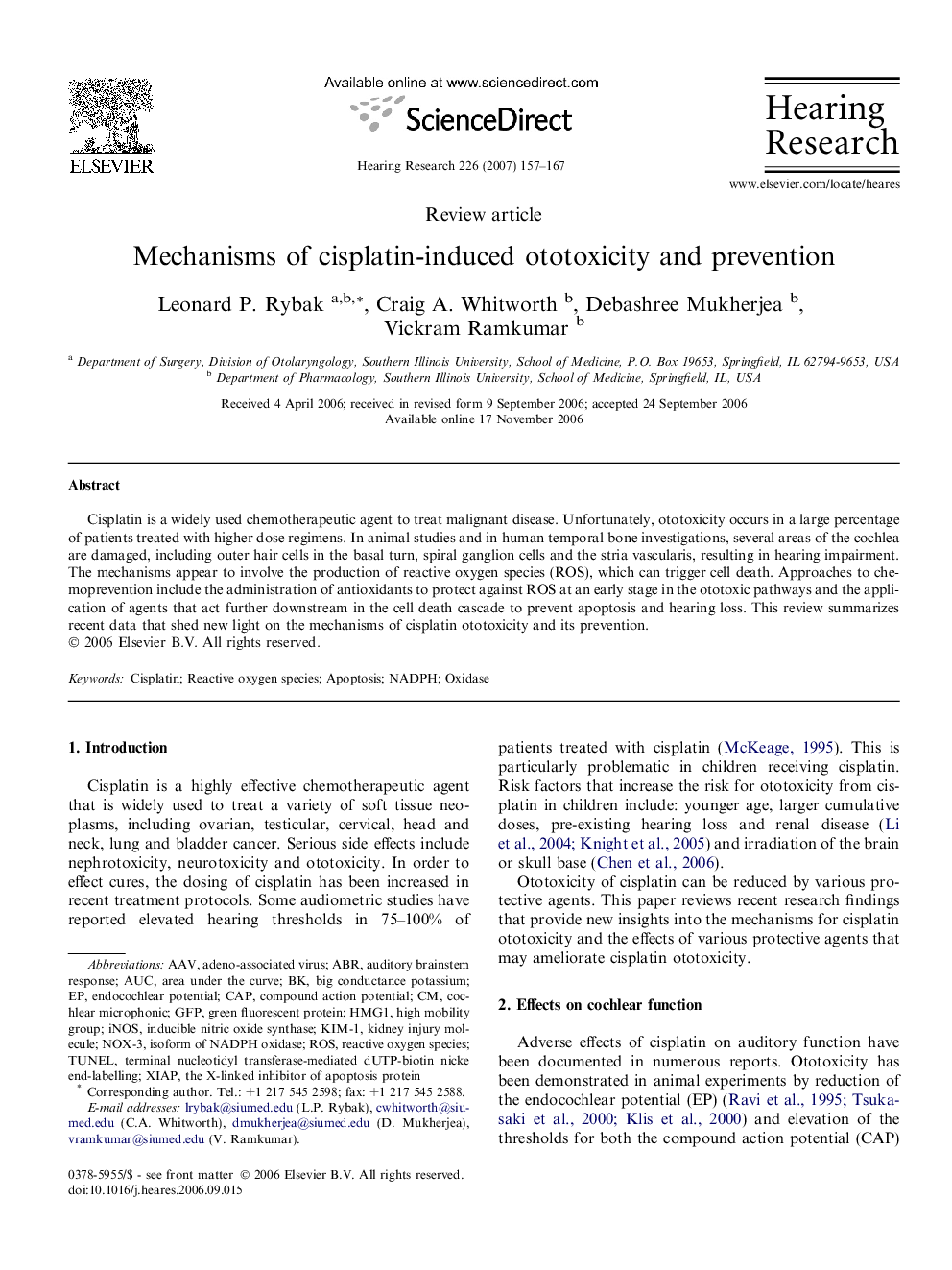| Article ID | Journal | Published Year | Pages | File Type |
|---|---|---|---|---|
| 4356328 | Hearing Research | 2007 | 11 Pages |
Cisplatin is a widely used chemotherapeutic agent to treat malignant disease. Unfortunately, ototoxicity occurs in a large percentage of patients treated with higher dose regimens. In animal studies and in human temporal bone investigations, several areas of the cochlea are damaged, including outer hair cells in the basal turn, spiral ganglion cells and the stria vascularis, resulting in hearing impairment. The mechanisms appear to involve the production of reactive oxygen species (ROS), which can trigger cell death. Approaches to chemoprevention include the administration of antioxidants to protect against ROS at an early stage in the ototoxic pathways and the application of agents that act further downstream in the cell death cascade to prevent apoptosis and hearing loss. This review summarizes recent data that shed new light on the mechanisms of cisplatin ototoxicity and its prevention.
